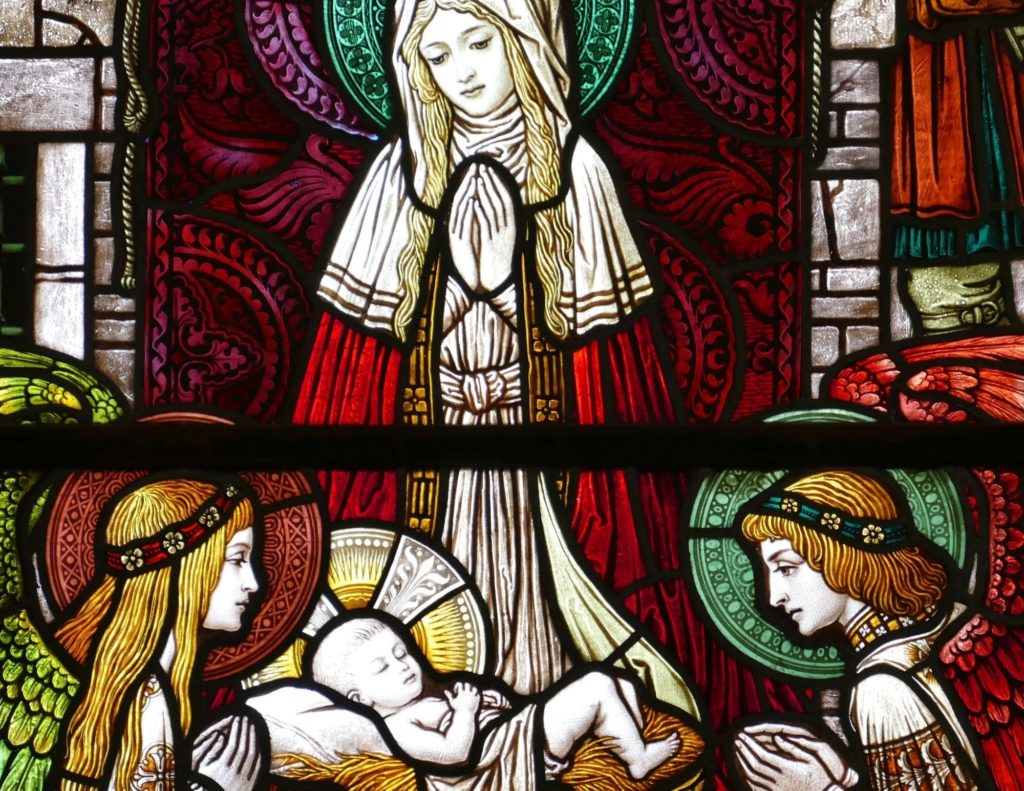
As we approach the celebration of Christmas this December, it made me think a lot about our holiday traditions, and why we celebrate the way we do. Just like Thanksgiving, most feast on the flesh and bones of other sentient beings, to say, “thank you” and celebrate the birth of Christ. But, I often wondered why such a holiday surrounded by love and kindness would involve the annual killing of so many animals for our family gatherings. I sought to answer this question, and seek any connections between Christianity and veganism, and look deeper into what the Bible might really be telling us.
In this post, I discuss some notable points within the bible, that some may believe are mistranslated or misunderstood. In fact, it may be the case that this ancient text includes teachings and lessons to maintain a healthy and compassionate vegan world.
- Genesis: How the world was created vegan
- Dominion over animals: Guardians not owners
- Humans giving permission to eat meat after the flood?
- But Jesus ate fish and other animals?
- Christianity and Veganism: Mistranslations and misunderstandings
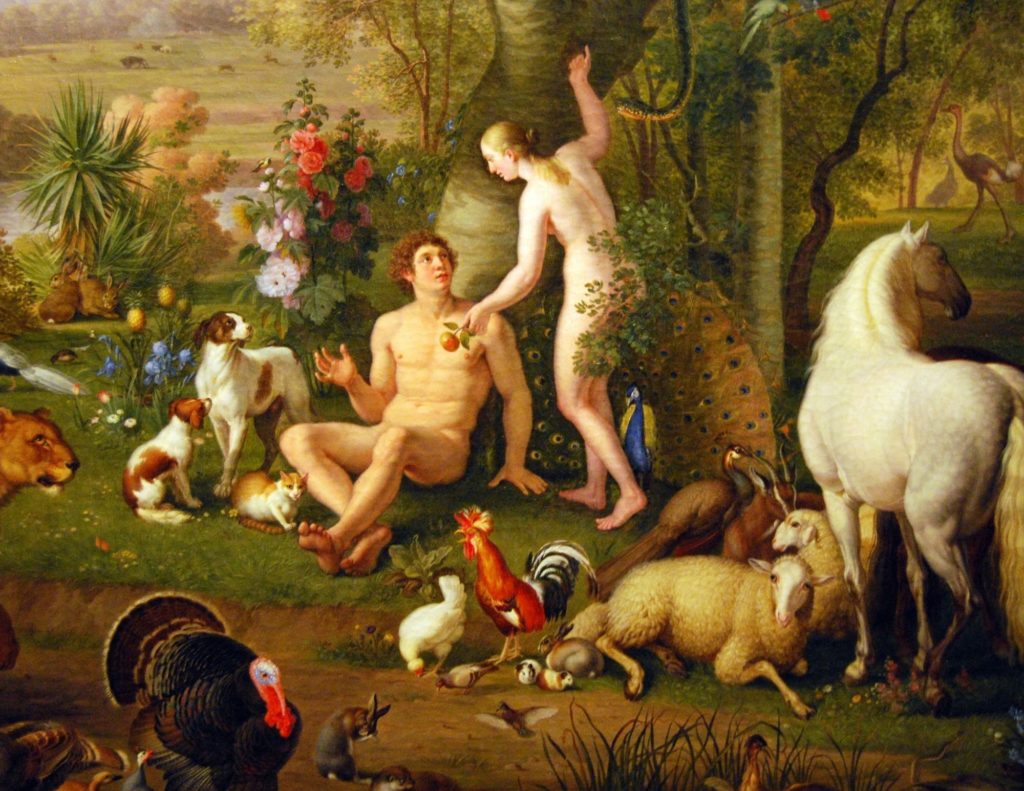
Genesis: the world was created vegan
It all begins in Genesis, the creation of man, woman, the earth, everything. At this time in the bible, humans and all animals were only allowed to eat plants:
“And God said, “See, I have given you every herb that yields seed which is on the face of all the earth, and every tree whose fruit yields seed; to you, it shall be for food. Also, to every beast of the earth, to every bird of the air, and to everything that creeps on the earth, in which there is life, I have given every green herb for food”; and it was so.”
Genesis 1:29 (KJV):
Similarly, The Babylonian Talmud notes:
“‘It will be yours for food. And to all the beasts of the earth.’ [For you and for the beasts,] but not the beasts for you.”
Talmud, Sanhedrin 59b
Rashi, a french rabbi known for concisely interpreting the Hebrew bible, further commented on this verse:
“Adam must not “kill a creature and [subsequently] eat its flesh.” Consumption of meat itself is not the issue; rather, it is the killing of a living creature that G‑d is concerned with. Were an animal to have died on its own, without human intervention, there would be no problem with Adam and his children consuming that animal.”
So it may appear that the bible depicts a world meant to exist without the consumption of animals, but why then do we think we have ownership or dominion over them?
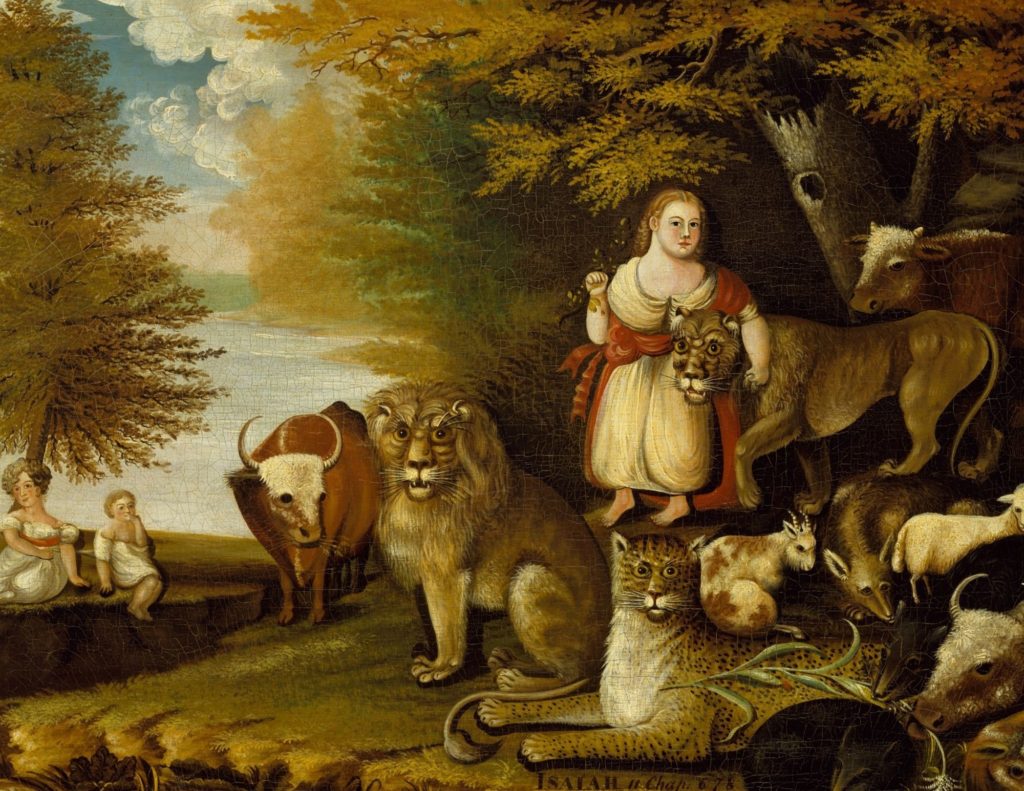
Dominion over animals: Guardians not owners
What does the word dominion really mean? Today’s definition of dominion is : Sovereignty or control; to rule over. But was this really what was meant in this ancient text, or was this word mistranslated? According to Rashi, The word dominion in the bible actually comes from the Hebrew word Yirdu, and this word itself suggests both ‘dominion’ (ridui) and ‘descent’ (yeridah). All in all, this word is not something that can be directly conveyed in English, and in fact means something like:
“when man is worthy, he has dominion over the animal kingdom, when he is not, he descends below their level and the animals rule over him.’”
Rashi on Genesis 1:27
In fact, Hebrew philosophers have long translated the word dominion to actually mean “responsible stewardship”. It makes sense, mankind was endowed the task to be guardians and stewards of those that cannot speak for themselves, to protect them, to care for them.
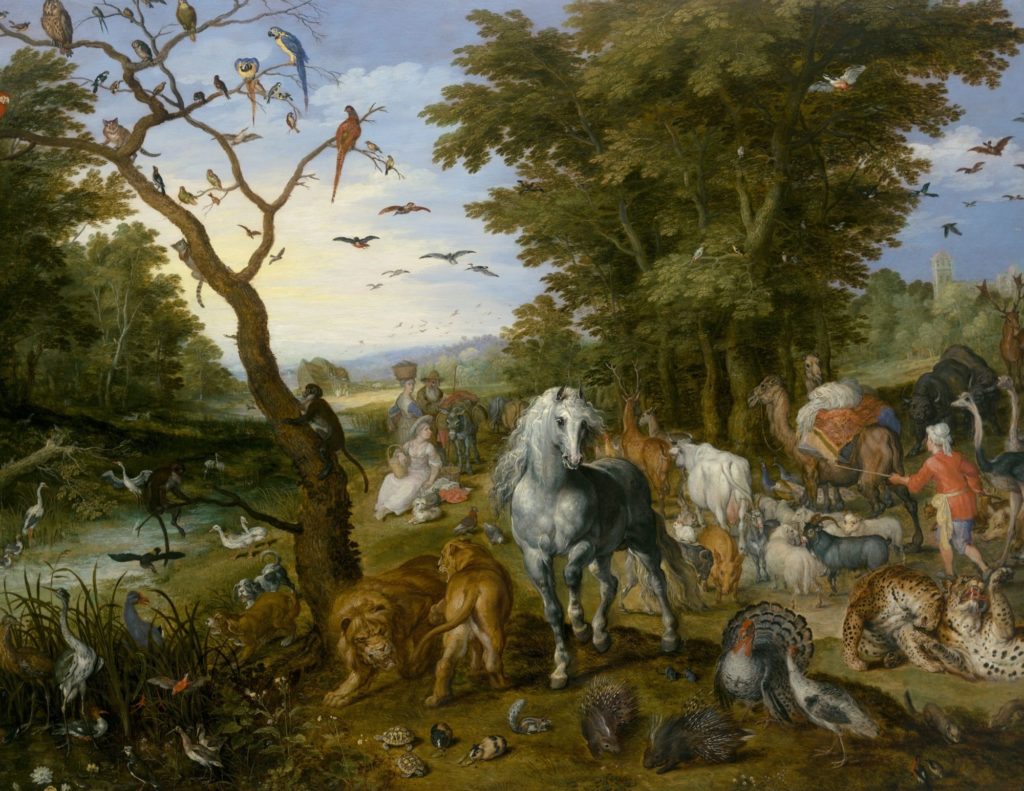
Humans given permission to eat meat after the flood?
Most know of the infamous story of Noah and the ark he built that saved his family and all animal species from the flood. It is a wonderful story of good vs evil, and the survival of our species in the midst of a natural disaster. After the flood there appears to be a change in this once vegan world:
“Every moving thing that liveth shall be meat for you; even as the green herb have I given you all things…“But flesh with the life thereof, which is the blood thereof, shall ye not eat.”
Genesis 9:3,4 (KJV).
So humans could now eat things that had once lived, but with some restrictions. The act of eating flesh, that contains “blood” could not be eaten. But does this mean that animals could be killed at a massive scale and just drained of blood before being consumed? What did the word “blood” really mean? Blood was commonly referred to as the “soul” or “life of the body”. So in this instance, we see that the rule to the consumption of animals was to only consume those that were dead already, lifeless. Could it be that the consumption of an animal that had lost its life naturally, was the exception and only if it was for survival in a time when the environment was near depleted of food?
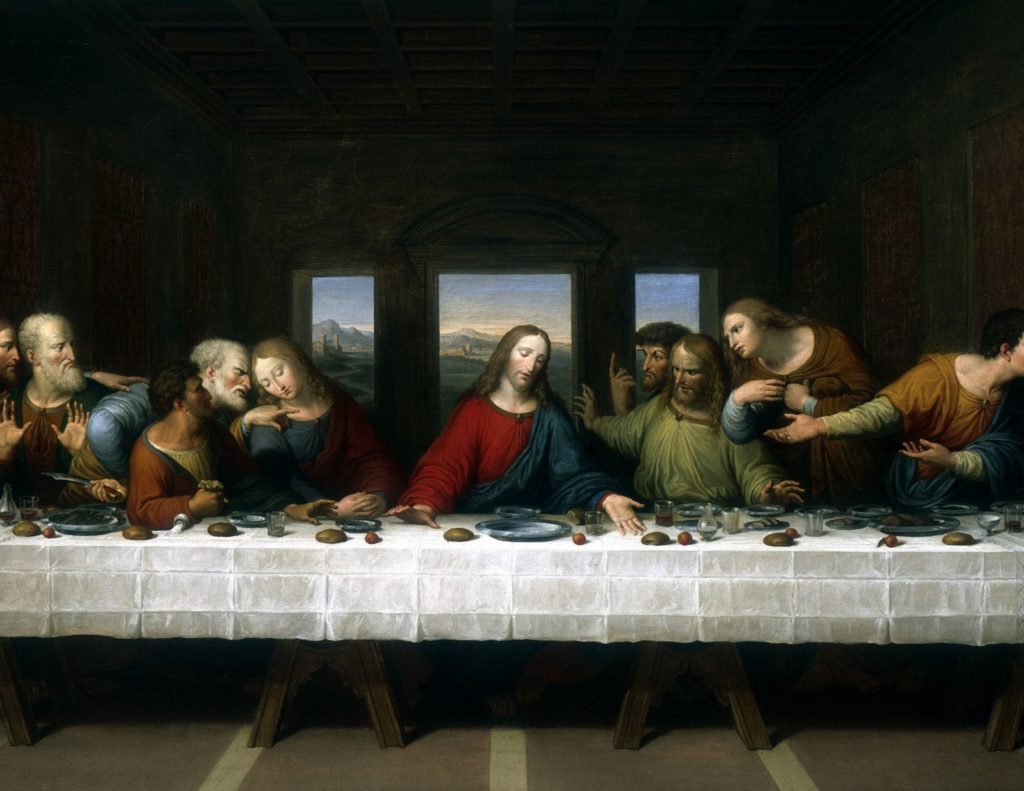
But Jesus ate animals?
Feeding the multitude
Later in the bible, we come across the story of Jesus “feeding the multitude”. In this story, Jesus feeds 5000 people from only five loaves of bread and two “fish” all provided by a young boy. But, as commonly seen across the bible, the word “fish” does not always denote an actual fish. Firstly, many scholars believe that the Greek word for fishweed “ψάριαφύκια”, was a dried seaweed and was mistranslated to “fish” in this story. Not only that, fishweed remains to be a common food for both Jewish and Arab peasants, especially those Jesus was probably speaking to at that time and in that area. It seems plausible that a highly nutritious source of seaweed widely available in a town by the sea most likely fed the masses.
The Last Supper
What about other animals, did Jesus eat them? Well, it seems that nowhere in the bible does it state that Jesus eats meat directly. It only states in Luke 22:8, that Jesus asked his disciples to prepare the Passover. Although lamb was often served at Passover, Pope Benedict XV stated that the last supper would have occurred at a time before the ritual sacrifice of the lamb. Rather the items on the menu were more likely to be unleavened bread, wine, olives, figs, and honey.
Was Jesus a Vegetarian?
“Therefore the Lord himself shall give you a sign; Behold, a virgin shall conceive, and bear a son, and shall call his name Immanuel. Butter and honey shall he eat, so that he may know to refuse the evil, and choose the good.”
Isaiah 7:14-15 (KJV)
So Jesus only ate butter and honey? To understand what this means, we have to take a look at the ancient Jewish dietary restrictions, specifically those for Nazarene Essenes (Jewish vegetarians). Nazarene Essenes rejected the consumption of animals and did not partake in animal sacrifices. They believed that the consumption of animals corrupted the heart. It may be the case that Jesus was in fact a Nazarene Essene, and the restriction of eating animals was to remain free of corruption and immorality. Likewise, Jesus was against animal sacrifices as written:
“For I desire mercy, not sacrifice, and acknowledgment of God rather than burnt offerings.”.
Hosea 6:6
Christianity and Veganism: Mistranslations and misinterpretations ?
It may be that this ancient text is trying to tell the story of a world protected and respected by humans. But has the translation of words across time and over different civilizations created a worldwide misunderstanding of our role on this planet? Specifically, our misuse of other beings here, and our consumption of them? If humans were meant to consume animals, with all the associated health problems, the effects on the environment, and not to mention the suffering…how could such a benevolent being condone and sanction this?
I leave you with these questions: Should we trust our moral instincts in what we all know is right and just? Should we not question the words passed down over time? And most importantly, should we celebrate holidays meant to be filled with love, kindness, and giving, by allowing the innocent to suffer?
Check out other posts on my sustainable lifestyle blog